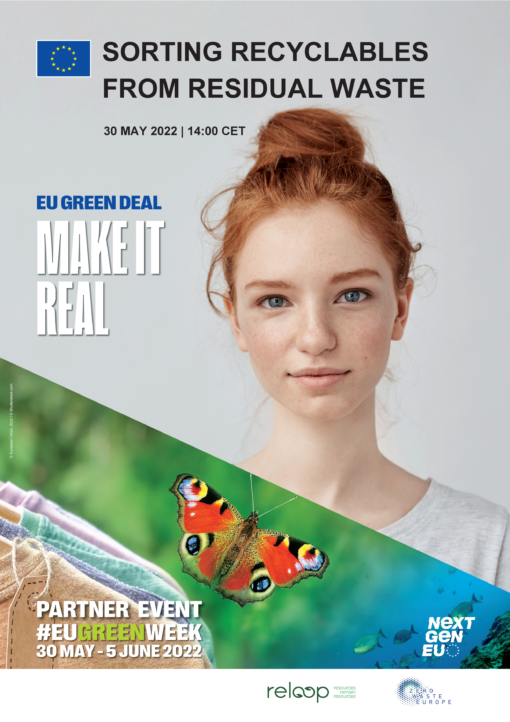
Register now – “Sorting Recyclables From Residual Waste” online event on 30 May 2022
Click HERE to register.
EU waste law rightly places an emphasis on separate collection of waste in order to facilitate its recycling. For many years, experience with sorting of recyclables of mixed waste proved more or less incapable of delivering materials of the required quality for recycling markets, and this remains true, to a greater or lesser extent, for some key materials. For others, such as plastics, for which the sorting capability has markedly improved, and for which the share in residual waste can be expected to have increased over time, the potential to extract (additional) materials for recycling is now clearly demonstrated
In countries where targets have been set to reduce greenhouse gas emissions to net-zero, there is a growing recognition of the climate change impact of burning fossil-derived materials such as plastics and synthetic textiles, which has led to an enhanced interest in sorting of plastics (but also other recyclables) from the residual waste stream as a strategy to meet EU climate and waste targets.
The case for reviewing the existing approach to managing residual waste to include sorting of residual waste is now clearly under consideration in some locations.
The “Sorting Recyclables From Residual Waste” online event will provide an opportunity for an open debate on the need for a mandatory application of mixed waste sorting (MWS) systems to all residual (municipal, and potentially other similar types) waste in the upcoming review of the Waste Framework Directive.
Full agenda and speakers HERE.
Register HERE by 29 May 2022.